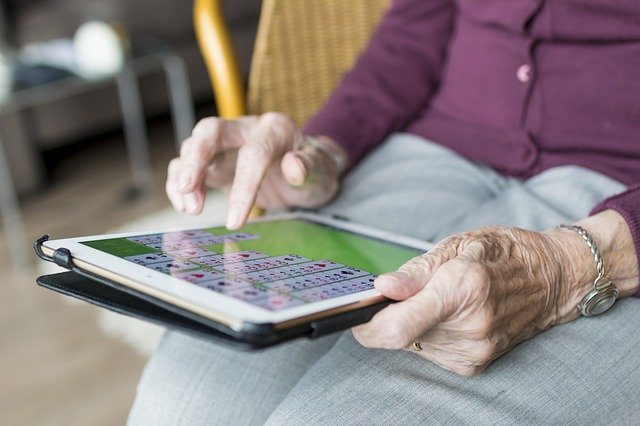
Old age is an unavoidable part of our life cycle and should be lived gracefully rather than grudgingly. In today’s fast-paced world we only start noticing signs of old age much after the gradual process is well underway…We need technology that will improve the lives of elderlies, the poor as well as the sick, and their families. We need technology that brings all of them together for better companionship and to make this world a beautiful place for them to live in.
Blockchain depends on stakeholder acceptance, and government agencies can use economic incentives to get users on board, such as granting access to certain government data, paying for it, facilitating federal loans, or lowering transaction and service fees. Agencies that implement blockchain can increase citizens “trust and create added value for the government and its citizens. As blockchain follows the path inherited in the economy by network technologies we can expect blockchain innovation to build on one-way applications to create local private networks in which multiple organizations are linked through a distributed register.
Blockchains can help streamline the entire process by eliminating middlemen, lengthy procedures, and the burden of unnecessary time delays. Blockchains record transactions while payments are transferred between recipients. Transactions cannot be reversed or modified, and blockchains ensure better accountability and security when such a system is used. Intelligent and self-executing contracts made possible by blockchain eliminate the need for intermediaries and improve contract preparation and execution.
How Will Blockchain Solve Privacy Problems?
To address this problem, relevant research applications from Azaria Ekblaw, Vieira and Lippman (2016), Juneja and Marefat (2018), Liu, Li, Ye, Zhang, Du and Guizani (2018), and Zheng, Mukkamala, Vatrapu and Ordiere (2019) used the on-chain storage architecture to store large amounts of original encrypted data without the use of trusted third parties. This approach reduces the storage load of the blockchain and ensures the integrity and privacy of private data. When medical records and other information are stored in the blockchain network, this increases the computing effort and storage load due to the fixed and limited size of the block.
Blockchain technology can reduce the complexities of retirement management and give pensioners greater control over their money. By adding cryptocurrencies to investment portfolios, blockchain can create accessible retirement plans that appeal to young people who need to start saving for retirement.
Why do Blockchain technology and the health sector jell?
Blockchain technology can maximize patient satisfaction by providing personalized care based on the patient’s complete indexed medical history and medical record. Blockchain Technology helps diabetics keep better track of their insulin intake. In the EHR system, anyone can upload medical records and other information to the blockchain. Users can leave and re-enter the system at any time, access their historical records according to the index, and download the latest blocks from the blockchains. Some companies use EHR consulting services for this reason alone
The use of blockchain technology in the medical field is not only a consolidated application of real blockchain technology but also blockchain technology with achievable efficiency levels. The use of this technology in neurology could lead to quantifiable advantages in the treatment of neurological disorders by monitoring patient health, clinical history, treatment, disease progression monitoring, recruitment, and clinical trials.
How Blockchain Technology Will Solve Financial Problems For The Elderly
Blockchain, the revolutionary computerized recording technology that acts as a digital register, is coming at a crucial time and could be a savior for pensions, thanks to the unique way it can be applied to ambitious projects in young industries. Blockchain or distributed ledger is an emerging technology that has attracted considerable interest from utilities, startups, technology developers, financial institutions, the national governments, and the academic community. Numerous sources from all these sources have found that blockchain has the potential to bring significant benefits and innovation.
While the core features of decentralization, security, origin, transparency, trust, and better management of data offer clear benefits in addressing acute health needs, a blockchain technology approach is needed to ensure that it is compatible with specific and diverse healthcare challenges. This forum article aims to address this problem by presenting an appropriate framework for the Health Blockchain which includes fundamental questions regarding fundamental blockchain design principles, data exchange, management, decision-making, and governance, examines how the technology can be used to improve blockchain functionality and defines the ultimate goals of blockchain solutions.
conclusion
Nothing is denying the fact that we can solve problems relating to the practical application of the technology, such as security and the lack of public or specialist knowledge that can guarantee the optimal functioning of blockchain protocols and bring maximum benefit to senior citizens.

